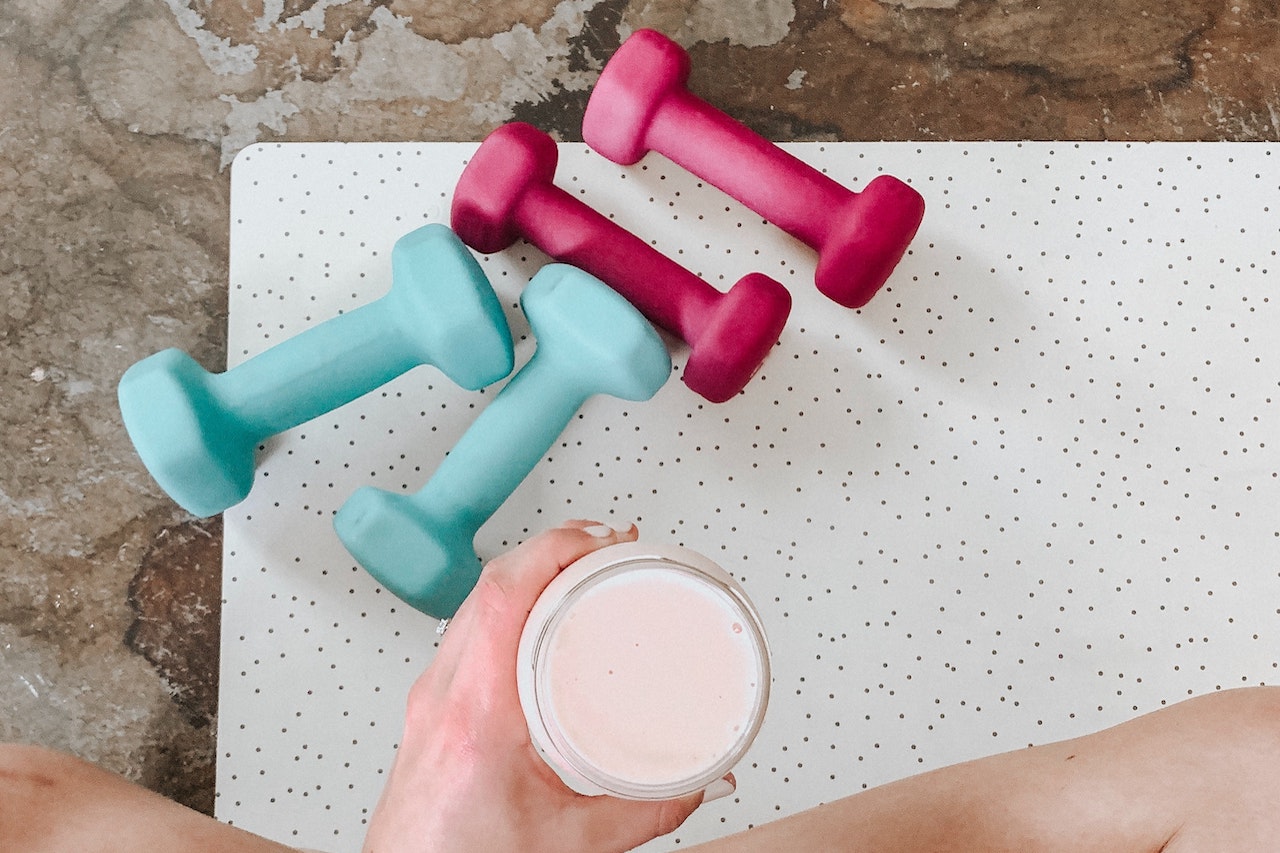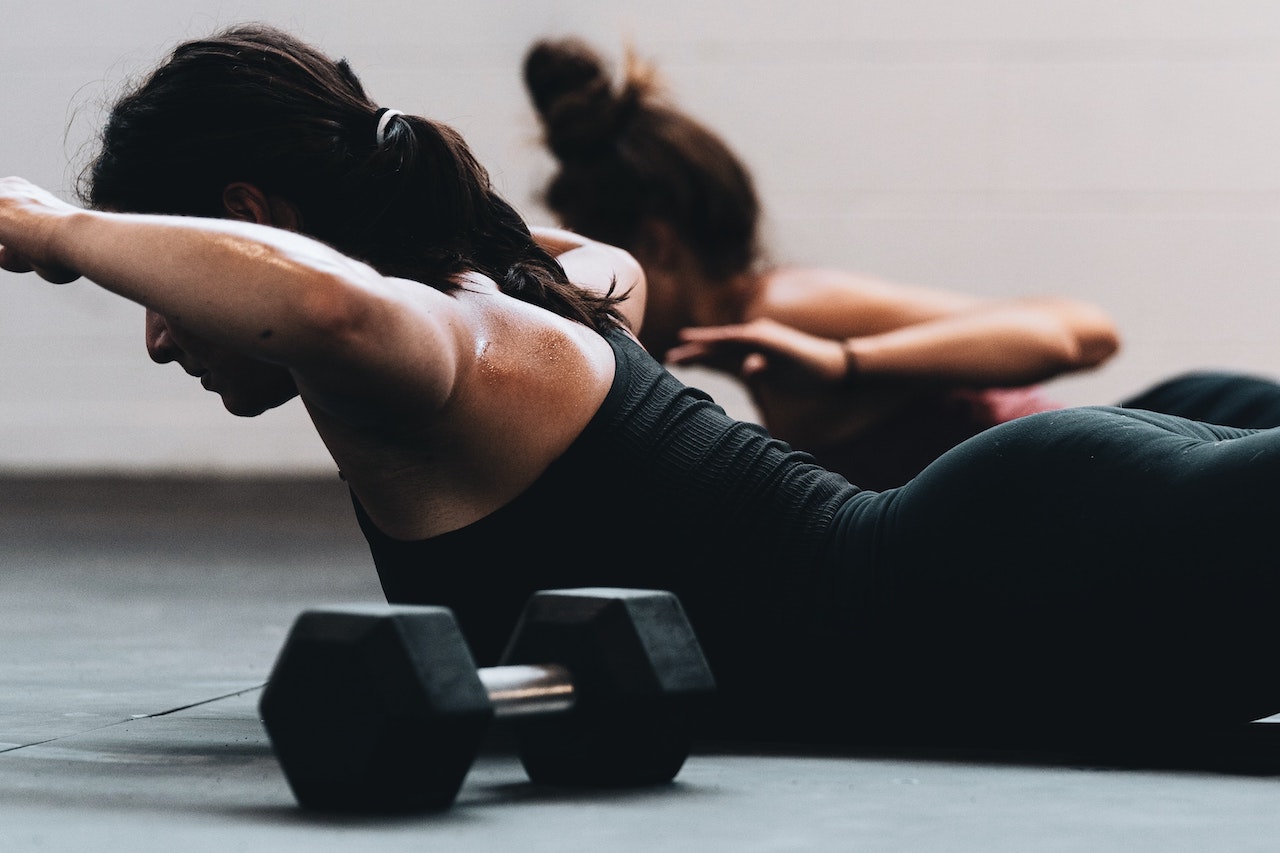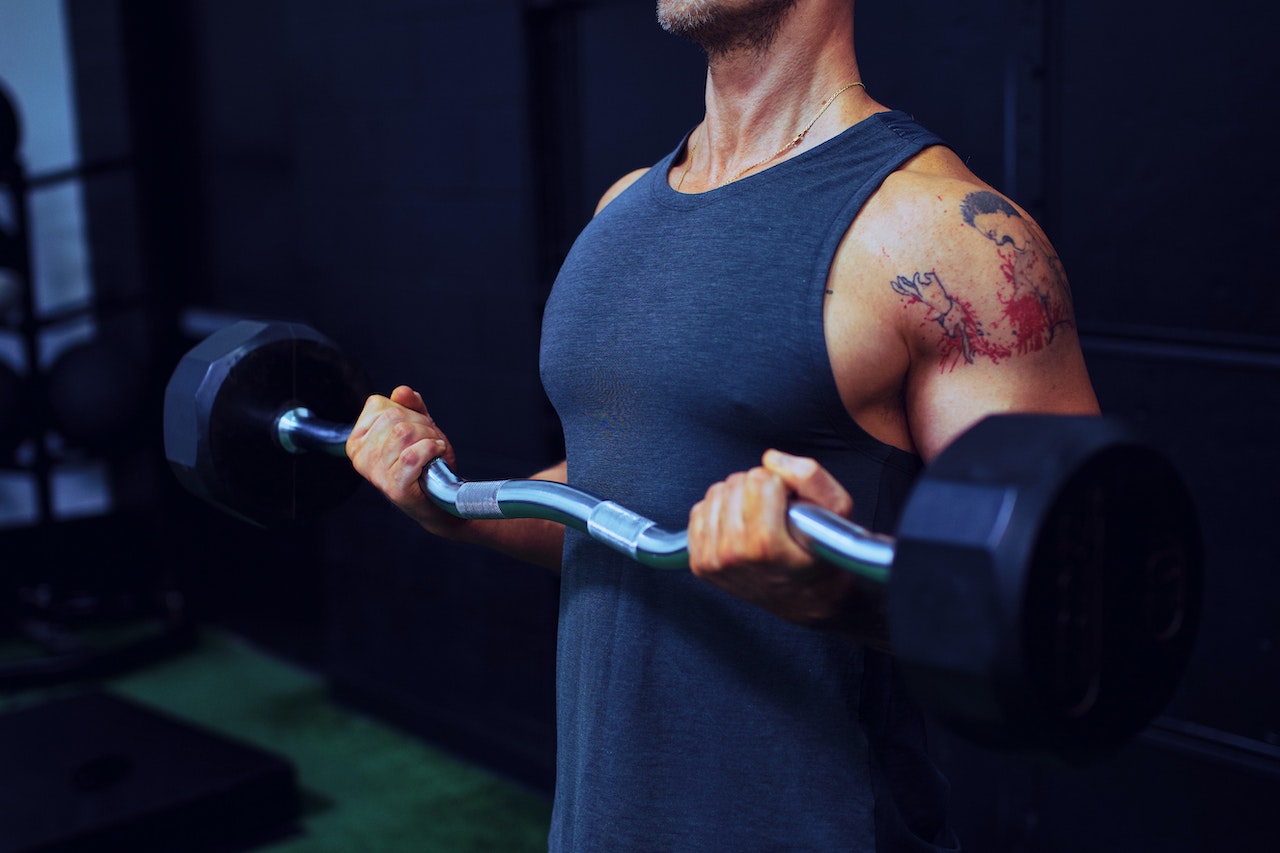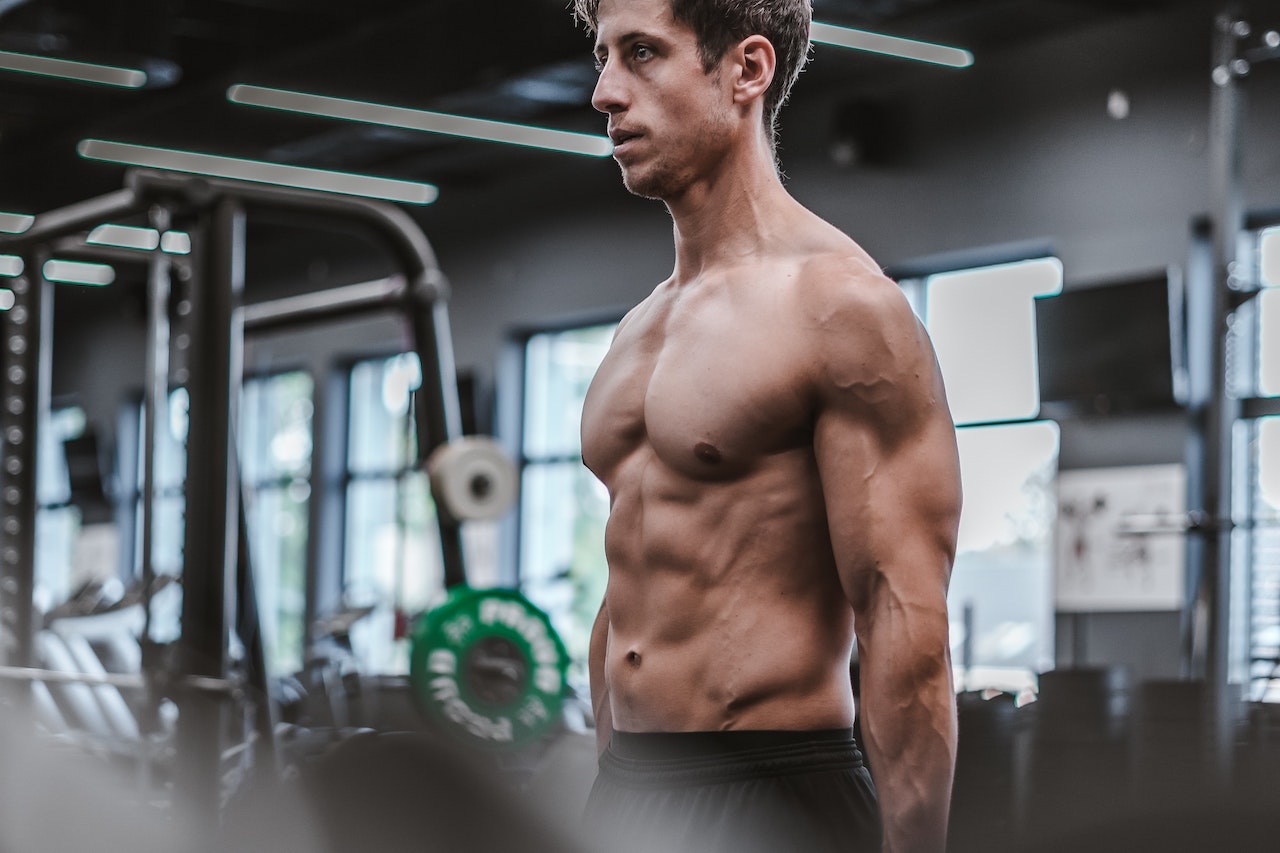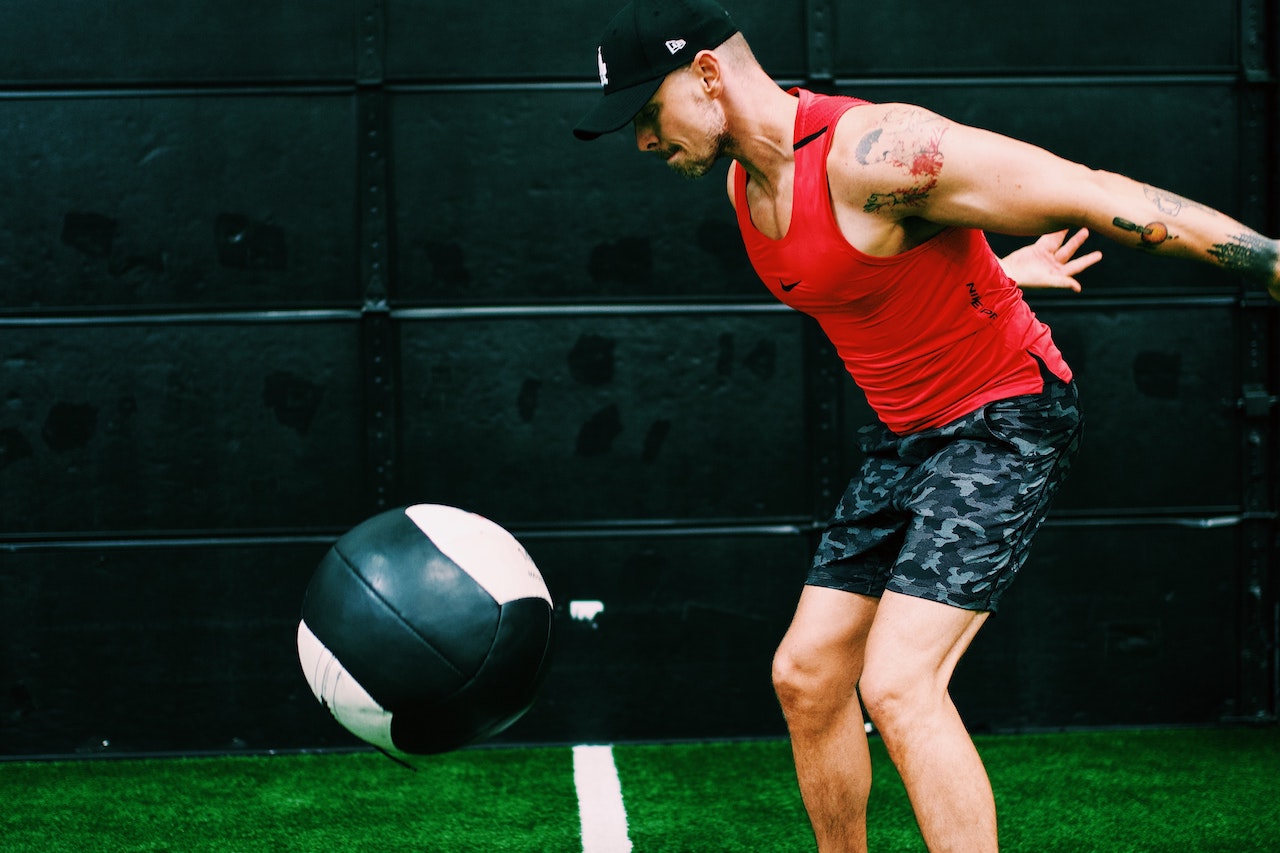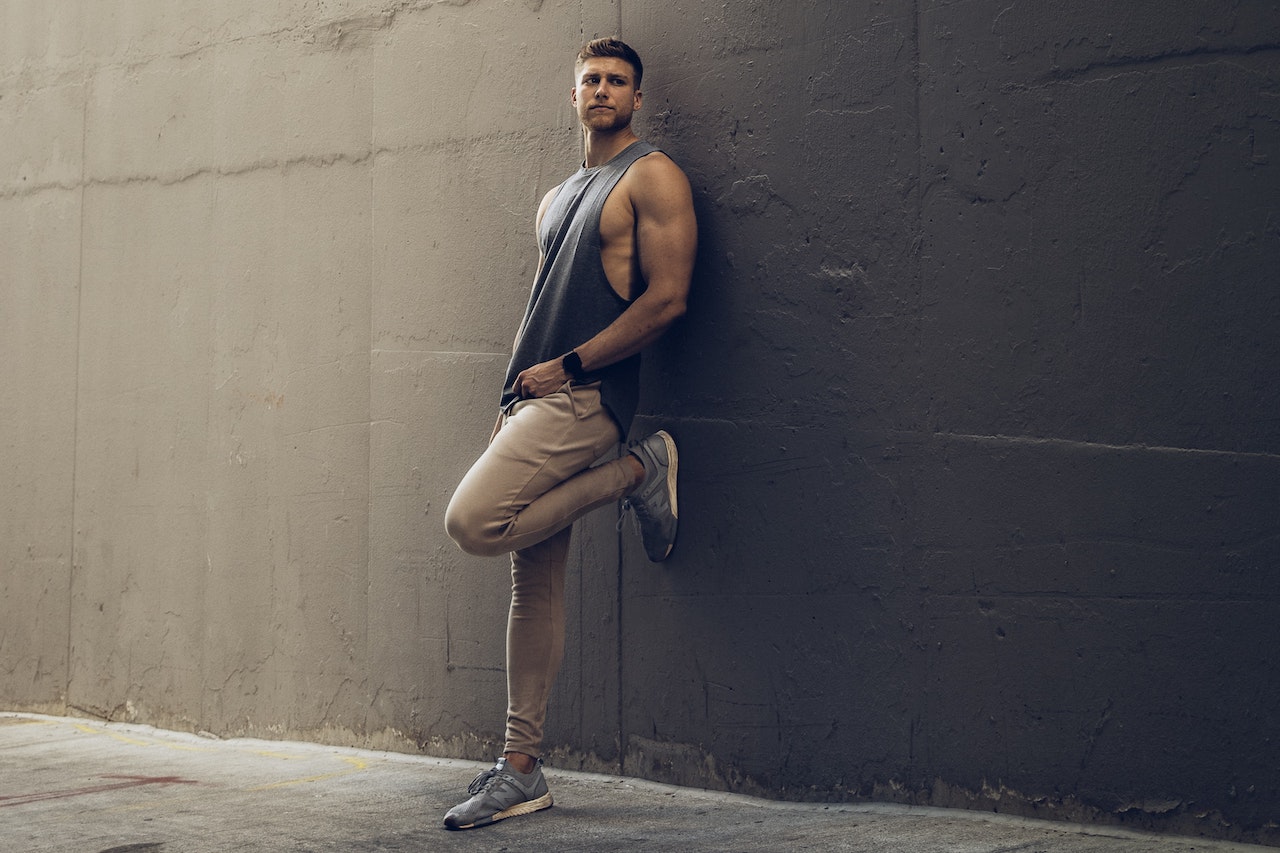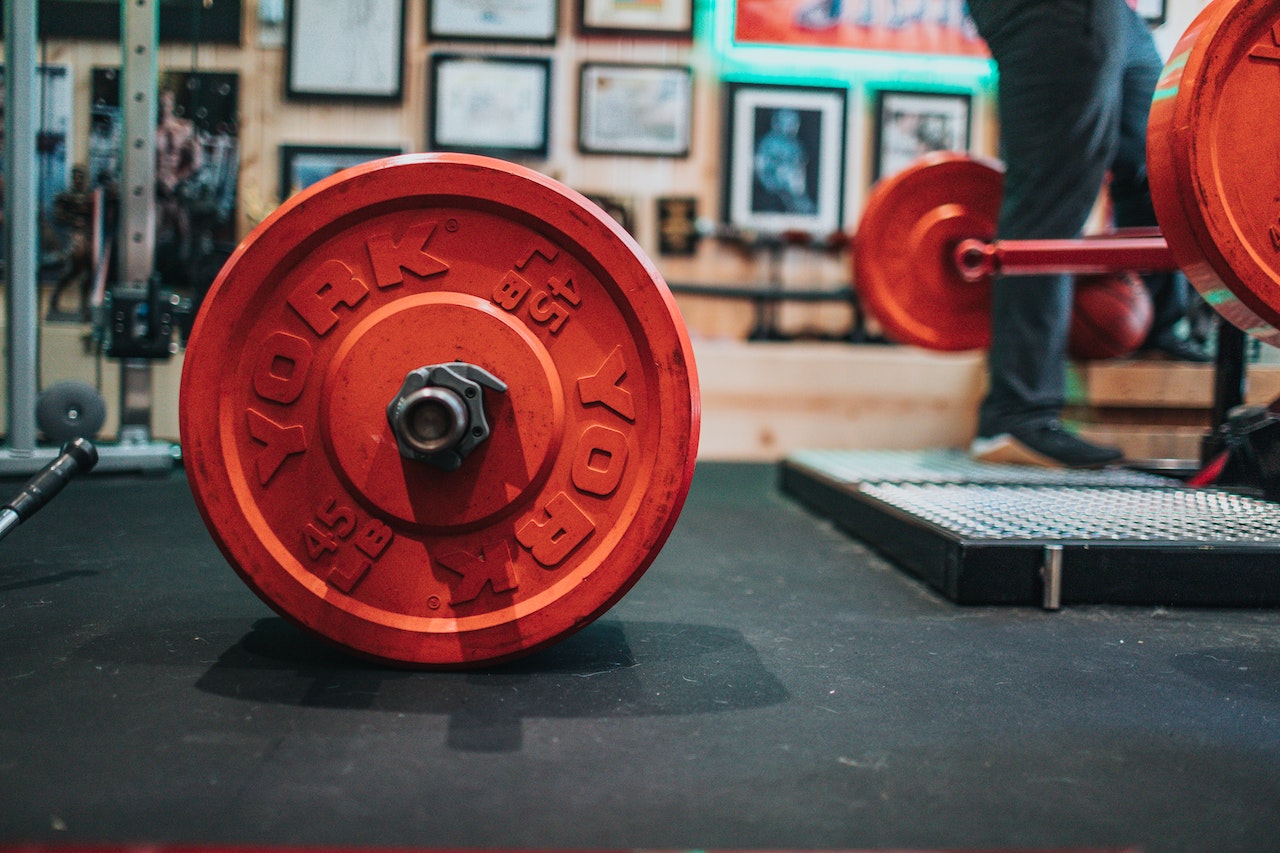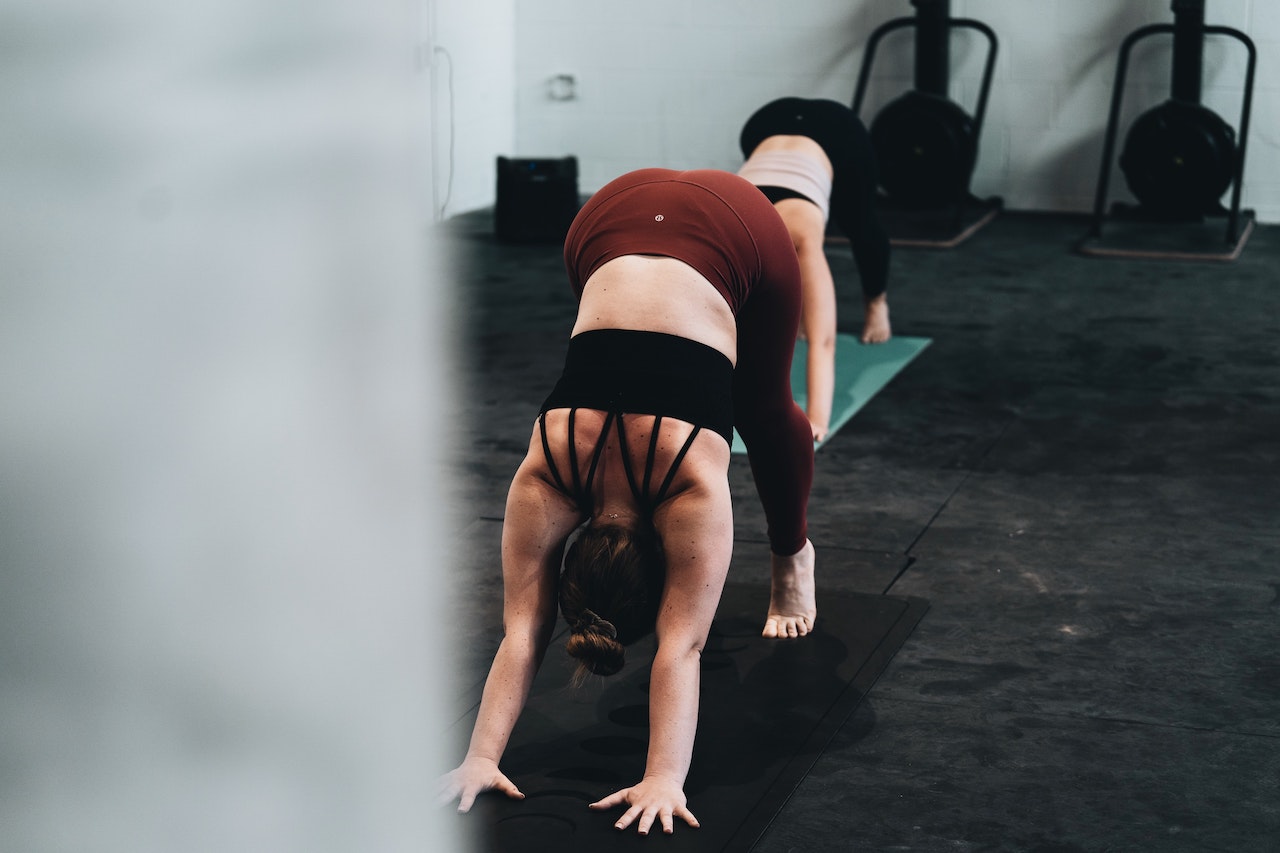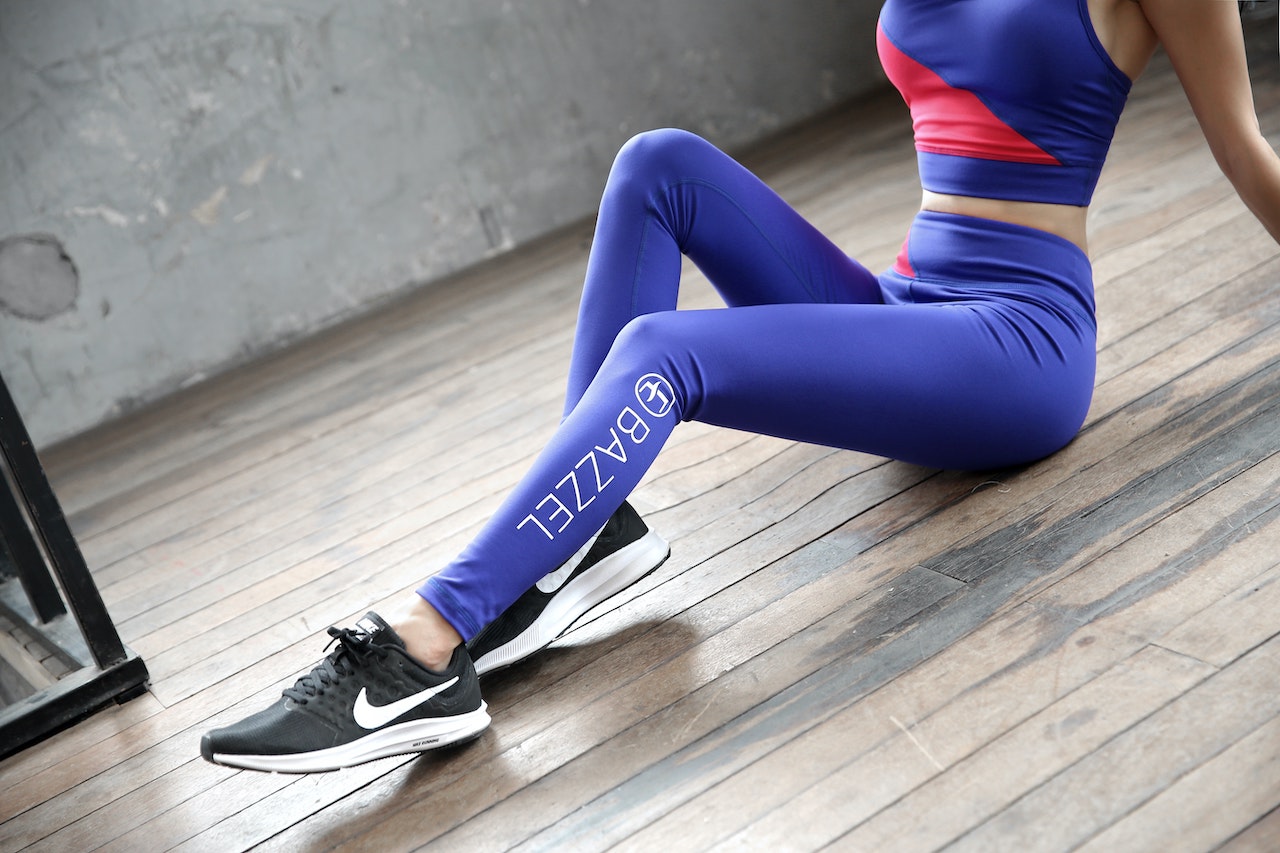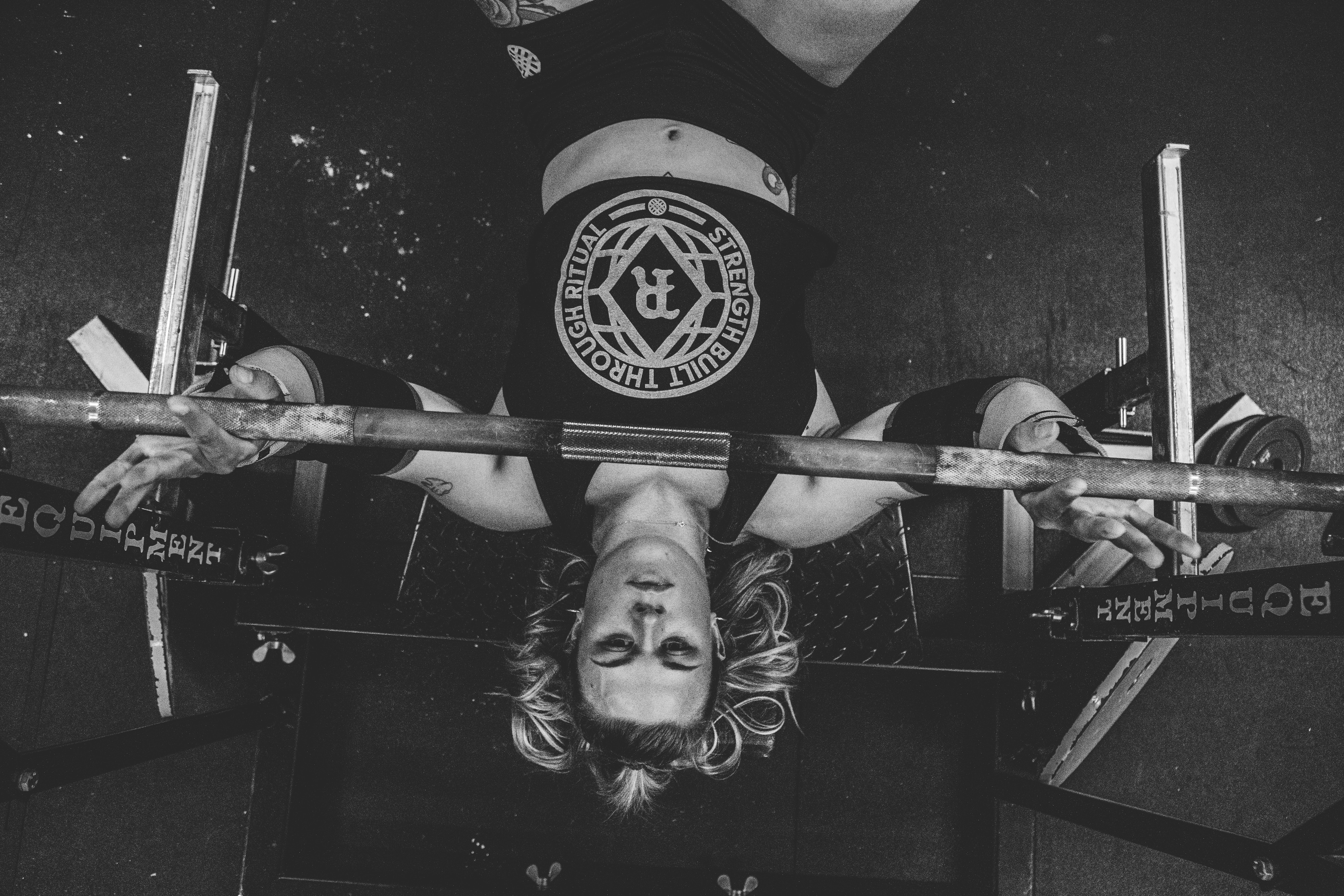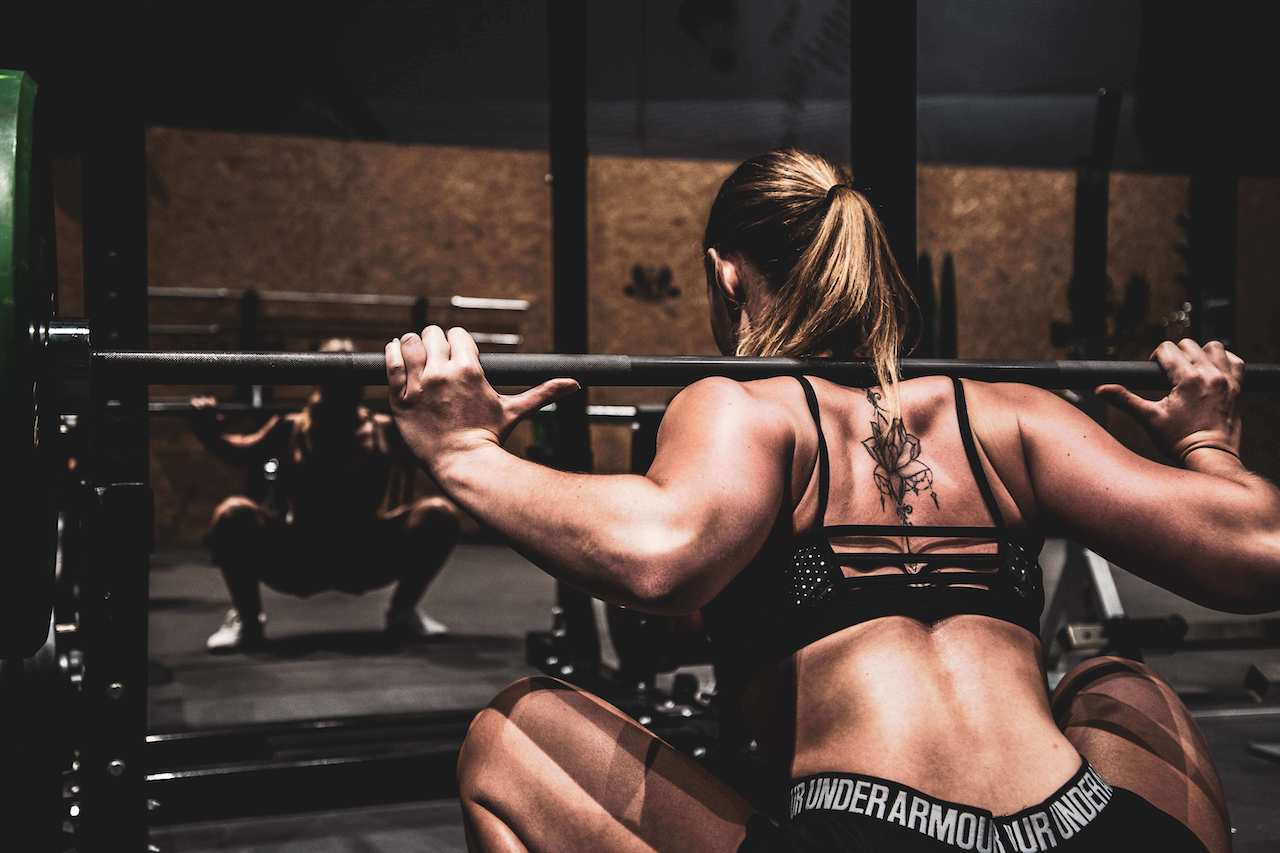how many sets and reps do you usually do on the bench press?
Do you vary your push-ups every day? Here are some variations for your chest that you may want to practice now.
Many of you have your own dumbbells at home, or even purchased them unannounced. To keep your chest strength from regressing excessively once you can get to the gym, try these two variations.

[home dumbbell chest variation workout
one-arm dumbbell bench press
most people have an imbalance in muscle strength, and if this imbalance is significant, then appearance and strength will suffer. The weaker side of the strength will impress the training performance as it is always exhausted first.
One-arm dumbbell push-ups correct the strength imbalance on both sides of the body while increasing the size of the pecs. Train the weaker side first and then do the same number of reps on the stronger side. In time, both sides of the body will become equally strong.
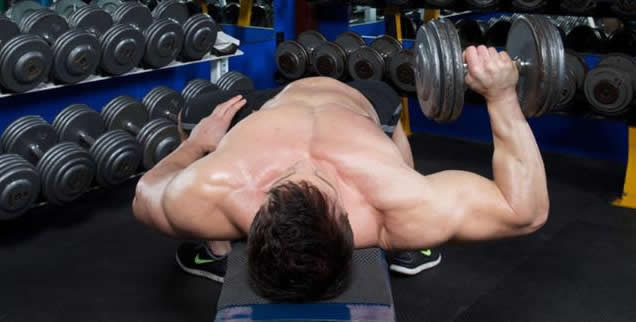
how to do.
Holding a dumbbell in one hand, lie down on a fitness chair. Push the dumbbell above your chest. Tighten your abs and place your feet on the floor to keep them stable.
Bend your arms and slowly lower the dumbbells to the side of your chest. Do not allow your shoulders or hips to twist. Push the weight up again and repeat the movement.
This movement can be performed on a horizontal, upward or downward inclined exercise chair. You can also do it on the floor - one arm dumbbell floor press.
Split-action dumbbell plank bench press
this movement makes light weights feel heavy so that you can train your chest without over-compressing your joints. The split-action dumbbell plank bench press is also great for trainers who can only train at home with lighter weights.
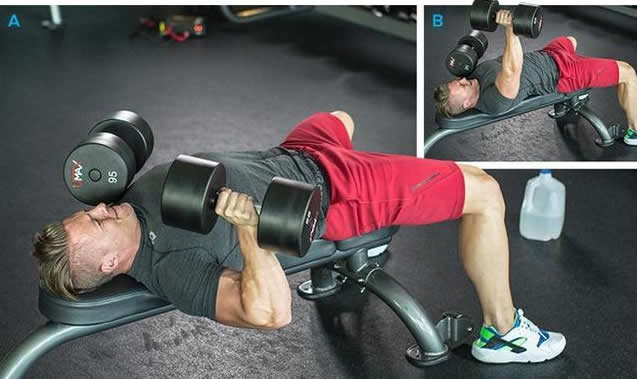
how to do.
Lie on a fitness chair with a dumbbell in each hand and push the dumbbell upwards naturally
keeping your left arm still, slowly lower the right dumbbell to your chest and push upwards.
Next, keeping your right arm still, slowly lower the left dumbbell to your chest and push up.
This is one movement; alternate between movements to train your arms.
You can also vary the above variations in terms of weight, rest time and number of sets to keep playing with new tricks. You don't necessarily need to start with the traditional barbell bench press as soon as the gym opens, but here are some variations to give it a whole new level of excitement.
[equipment-based chest variation].
Floor press
the floor press is a great way to train your pecs and triceps without the use of a bench or bench press. It's also easy on the shoulders and helps strengthen the lockout - the last part of each movement.
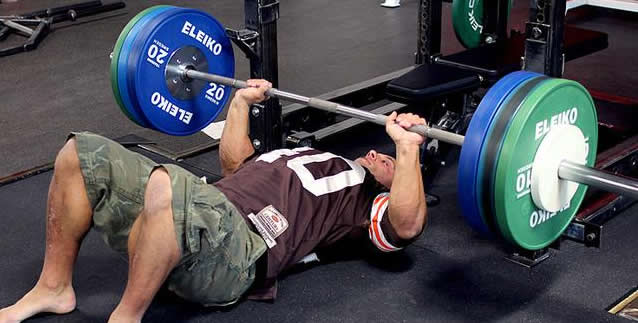
how to do.
Place the barbell 6-8 inches off the floor.
Lie under the barbell and hold the barbell with a grip wider than shoulder width. The upper arms should gently touch the floor.
Push the barbell upwards naturally, then place it back on the rack. This is one movement - keep doing it!
You can also do this with dumbbells or kettlebells, using one hand at a time.
Pause bench press
you cannot bounce the barbell off your chest when doing the pause bench press. Although bouncing the barbell up allows you to lift more weight or perform more reps, this takes pressure off the pecs and affects the effectiveness of the movement. Adding a pause to the traditional bench press will ensure that the pecs are firing and prevent any cheating.
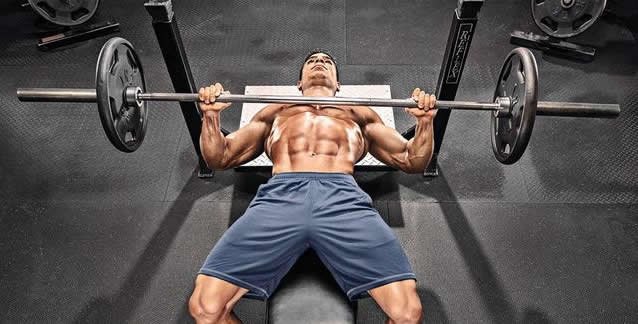
how to do.
Lie on a fitness chair with your eyes facing the barbell
hold the barbell in both hands with a grip greater than shoulder width apart
take the barbell down and slowly place it on your chest
do not relax, pause with the barbell in front of your chest for 2-3 seconds
push the barbell up to arm level and repeat the movement
you can also do this with dumbbells or bench press equipment
dumbbell fly and bench press
this unique chest variation combines two movements to really increase the size of your pecs. It's best to use an exercise chair that can be up-slung, flattened or down-slung.
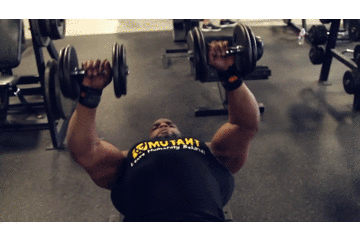
how to do.
Lie on the fitness chair and hold a dumbbell in each hand. Push the dumbbells upwards to arm height. Rotate your wrists with your palms facing inwards.
With elbows slightly bent but locked, open your arms and lower the weights to the sides of your body. Squeeze the muscles and return to the starting position.
Rotate your hands until your thumbs are pointing inwards. Bend your arms and lift the dumbbells to the outside of your chest, then bring the push-up dumbbells back down.
This is one movement, repeat to the recommended number, remembering that each movement consists of two separate movements.
Eccentric overload push-ups
you are stronger on the eccentric than the centripetal, which means you are pulling down more weight than you are lifting. Make the most of this by adding eccentric overload push-ups to your chest training to both build muscle and strength.
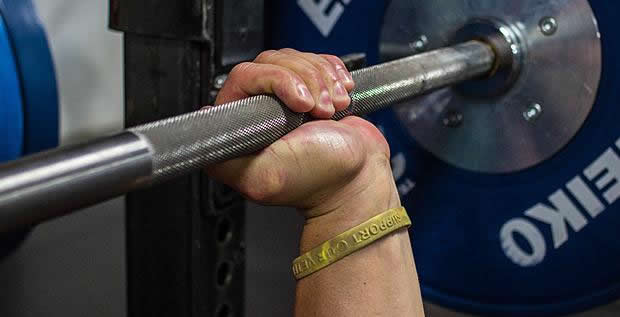
how to do.
Use 60% of your usual weight for this movement
grasp the handles of the bench press machine and extend your arms normally
next, move one hand away and lower the weight with only one hand. Lower the weight smoothly and under control
push the weight up with both hands
remove the other hand and lower the weight with only one hand
alternate arms during the set
suspended barbell bench press
this exercise uses instability to train the pectoral muscles, strengthening smaller stabilising muscles. Stronger stabilising muscles in the shoulders will reduce the risk of injury and will mean that heavier weights can be used in chest training. This will allow you to train better in all movements.
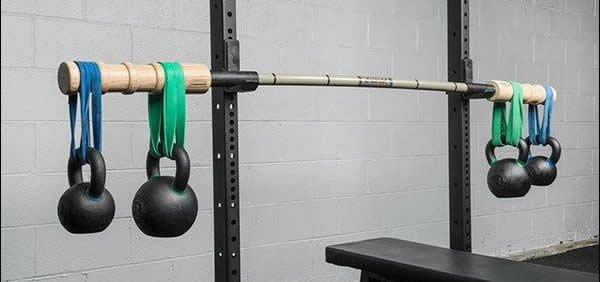
how to do.
Using a resistance band, attach a small barbell piece or kettlebell to each end of the barbell. The weight should hang down towards the floor, but should not touch the floor, even at the lowest point of the movement.
Bring the barbell down as usual and hold it in front of your chest. The bar will swing forward, backward and to the side. Do your best to control it as you sway.
Push the barbell up and repeat the movement
reverse grip flat bench press
this movement works the upper chest more than the traditional bench press. If you don't have an upper incline bench, this is a great way to train your upper pecs. It is also easier for the shoulders than the regular barbell bench press, although this unusual grip will take some getting used to.
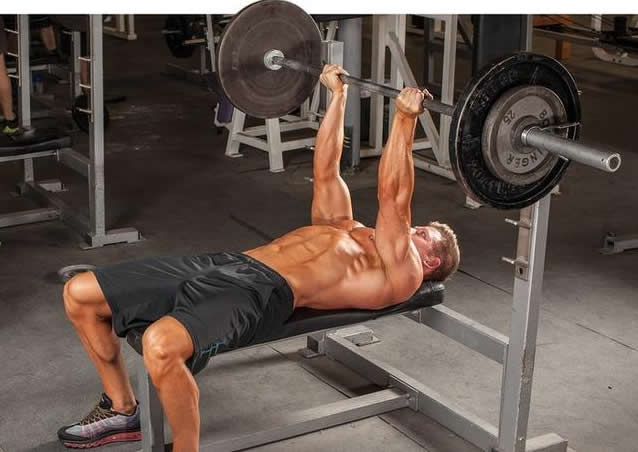
how to do.
Lie on a fitness chair with your eyes facing the barbell
hold the barbell with your palms facing your face and grip it with both hands wider than shoulder width apart
take the barbell down and place it slowly on your chest
without bouncing the barbell, push the bar up and repeat the movement
grab and release smith machine bench press
this unusual move would draw a sideways glance in the gym, but it's a great way to increase the strength and size of your pecs.
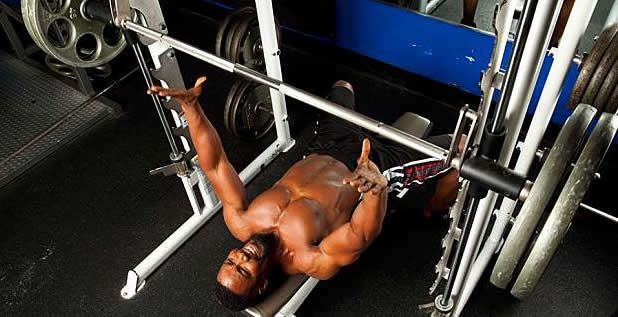
how to do.
Set safety hooks on the smith machine so that the barbell doesn't touch your chest if a rep fails
take the barbell down and place it on the safety hook
next, suddenly straighten your arms and push the barbell upwards as fast as you can. Release the bar and let it continue upwards.
Grab the bar as it comes down and then place it back on the safety hook.
This is a more difficult movement and is suitable for experienced trainers.
1 rep + half bench press
this movement increases the time under tension. This means that this movement is going to give you more volume per set than a regular flat bench press workout. This movement will give you a real pumping sensation. The weight should be lighter than that used for normal training and this is a difficult training variation.
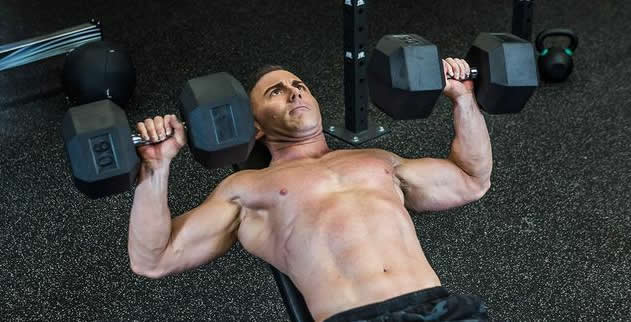
how to do.
Lie on a bench with your eyes directly over the barbell
hold the barbell with a grip wider than shoulder width
bring the barbell down and slowly place it on your chest
push the barbell up to halfway
lower the bar again
push the barbell up until your arms are fully extended
this is one repetition; repeat to the recommended number
this movement can also be done with dumbbells, a push press or a smith machine
weights and reps for the above movements
the weights and reps are based on the training goal. If you want to increase the size of your muscles, you need to choose a medium weight with enough sets to create microtrauma (muscle damage) and pumping sensations in your muscles. If you want to increase strength, you should reduce the number of sets and increase the weight.
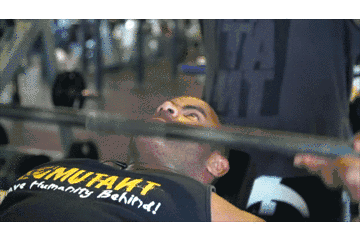
want both strength and size? Choose a medium weight and reps.
Strength: 1-5 reps, 85-100% of 1rm, 3-5 minutes rest between sets
size: 6-12 reps, 67-85% 1rm, 60-90 seconds rest between sets
force and size: 4-8 reps
apply these guidelines to your pec workout to see the results you want from your workout.

we emphasise variations because the muscles adapt easily to your rhythms and you need to do variations every now and then to consistently keep them fresh. By adding these ten chest variations to your workouts, you will train muscle size and strength faster than ever before.




